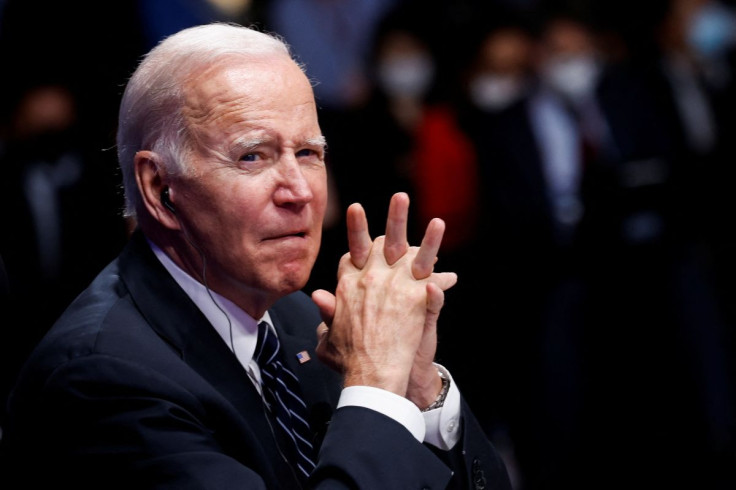US, IPEF Partners Agree On Supply Chain, Climate, Fair Economy Pillars But Not Trade

KEY POINTS
- The IPEF initiative comprises of four pillars: supply chains, clean energy, anti-corruption and trade
- The U.S. hosted the third in-person IPEF ministerial meeting in San Francisco this week
- The 14 members of IPEF have so far agreed on three of the four pillars, leaving the trade pillar in a limbo
The United States and 13 other members of the Indo-Pacific Economic Framework (IPEF) have agreed on three of the initiative's four pillars -- supply chains, climate, anti-corruption and trade.
IPEF countries signed the supply chain agreement and also came to a consensus on the clean energy and fair economy pillars, leaving the trade pillar in limbo, as negotiators have still not come to an agreement.
Launched in 2022 by President Joe Biden, IPEF members represent 40% of global gross domestic product. In addition to the U.S., the members include Australia, Brunei, Fiji, India, Indonesia, Japan, South Korea, Malaysia, New Zealand, Philippines, Singapore, Thailand and Vietnam.
The U.S. hosted the third in-person IPEF ministerial meeting in San Francisco this week. "Discussions at this meeting focused on three areas: Pillar 1 (Trade), Pillar 3 (Clean Economy), and Pillar 4 (Fair Economy) and significant progress was made. In addition, the signing ceremony for Pillar 2 IPEF Supply Chain Agreement, which was substantially concluded at the Ministerial in Detroit in May of this year, was also held," said a statement by Japan's Ministry of Foreign Affairs.
The previously agreed upon text of the supply chain resilience pillar was formally signed Tuesday and was widely seen as a means of reducing the member nations' dependence on China.
"One of the key pillars of IPEF is supply chains. This is one of the priorities for the Quad partners as well. What COVID showed us was supply chains disrupted in China meant supply chains disrupted around the world. That's far too drastic to depend on one major economic player. So what we are witnessing is some form of 'supply chain insurance,' where countries and companies are trying to diversify supply chains, to reduce dependency on China," Akshobh Girdharadas, Visiting Fellow, Observer Research Foundation (ORF), told International Business Times.
"Washington has also made priorities like friendshoring and nearshoring - that is supply chains to countries it considers political and economic allies and partners. This is evinced by Apple trying to relocate some of its iPhone manufacturing out of China and to India," he added.
U.S. Commerce Secretary Gina Raimondo said Thursday there was "tons of enthusiasm" from IPEF partners over the progress on supply chains, clean energy and anti-corruption pillars.
However, negotiations over the past week failed to produce an agreement on the IPEF's trade pillar, which was seen as a setback for the Biden administration.
The Biden administration had rushed to finish negotiations on the trade pillar ahead of the APEC summit to show China that Washington was deeply engaged in the region and was working to counter Beijing's economic gains in Asia.
Chinese state-backed newspaper Global Times even described IPEF's real purpose as a means to encourage regional economies to "decouple" from the Chinese market and undermine the unity of ASEAN.
"Washington's priorities have been to create a 'free and open Indo-Pacific,' one that is free from coercion," Girdharadas said. "The elephant in the room is the dragon, and with Beijing's clout in the region, the push was to consolidate American presence with like-minded partners, Japan, Australia, and India in the Quad, and with ASEAN nations."
As part of former President Barack Obama's tilt toward Asia, the Trans-Pacific Partnership (TPP) was a centerpiece strategy that his successor Donald Trump formally withdrew from on his first full day in office in January 2017.
"The Trump administration backed out of the then Trans-Pacific Partnership or TPP, which was President Obama's pivot to Asia in 2013. By doing so, it was akin to scoring an own goal or leaving the field, allowing China to dominate. So in some ways, Trump's trade protectionism, left a vacuum; hence, a comprehensive Indo-Pacific strategy [has] fructified to the IPEF ministerial dialogues we see right now."
© Copyright IBTimes 2025. All rights reserved.





















